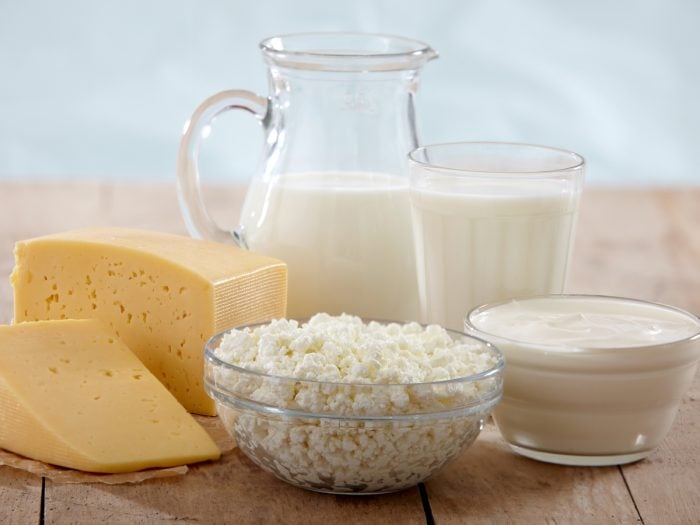Many people have recently been talking about using a milk diet for weight loss, but before you adhere to a new and unusual fad diet, it is important to understand what benefits it may hold, as well as the potential risks.
Table of Contents
What is a Milk Diet?
A milk diet can take on a number of forms, but at its core, it is a diet in which only milk is consumed for an extended period of time – days or weeks – without any other type of food. In some cases, the milk diet consists of drinking just 4 pints of milk per day, which is equivalent to about 1,000 calories. Considering that your daily calorie intake should be roughly twice that high, this diet is obviously quite extreme. Weight loss is the ultimate goal for most people on a milk diet, but improving other aspects of your health is also possible. [8]

Milk diet involves consuming only milk for weeks without any other type of food. Photo Credit: Shutterstock
For those who don’t want to completely give up all other foods except for milk, simply increasing your daily intake of milk can have notable health effects, thanks to the high levels of minerals, vitamins, and active ingredients found in this common beverage. [9]
How Does a Milk Diet Work?
If you are interested in embarking on a milk diet, most experts wouldn’t recommend completely eliminating food from your diet. Extreme calorie deficits each day may result in rapid weight loss, but it would also be dangerous for your health, and almost certainly result in certain nutrient deficiencies, as well as a complete lack of fiber. Instead, a more accessible type of milk diet consists of drinking 2-3 glasses of milk per day, along with a very light and carefully monitored diet. [10]
Milk is very high in calcium, with roughly 30% of your daily requirement for this mineral found in every cup of milk. This critical mineral can help stimulate metabolism, while the conjugated linoleic acid (CLA) found in milk fat can further help you improve your heart health. When a significant increase in milk consumption is paired with regular exercise and light, healthy eating, people report getting results quite quickly. However, before you start using this diet, it is important to speak with your doctor about any potential risks, as making a major shift in caloric intake or nutrients can be dangerous. [11]
Milk Diet for Weight Loss
As mentioned above, some people go on milk diets for a few days of fat-burning, or they make it a regular part of their lives, as they are aiming for long-term and sustainable results. If you use a milk diet for weight loss, it will also help you move away from refined sugar and deliver many of the key nutrients you need every day. [12]
Week 1
Drink 4 cups of fat-free milk over the course of each day, complemented by vegetables, salmon, tuna, and certain whole-grain breakfast foods. Avoid red meat and be sure to add citrus fruits and juices to your daily intake.
Week 2
Drink 3 cups of fat-free milk and 1 cup of green tea each day. Increase your intake of beans and nuts, and you can add some chicken soup to your evening meals. Fish is still a major part of your protein intake, along with vegetables and high-fiber foods.
Week 3
Drink 3 cups of warm fat-free milk mixed with either cinnamon or turmeric every day. Be sure to eat plenty of seeds and whole grains during this week, as well as lots of grilled vegetables. You can eat basic chicken, but continue avoiding red meat.
Week 4
Drink 2 cups of warm fat-free milk each day, along with high-fiber vegetables and oily fish, such as salmon and mackerel. Fruits are also recommended, along with oatmeal and low-sodium nuts.
Remember, whole milk does have roughly 140 calories per cup. Losing weight requires a caloric deficit – more calories burned than calories consumed – as well as a healthy amount of exercise and a balanced diet without major nutrient deficiencies.
